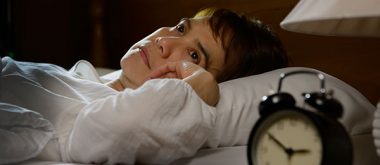You may not be thinking about it, but daylight saving time can have a negative effect on the health of senior men and women.
This tiny change in time, where we “spring forward” our clocks in the springtime, can have quite the impact on the body and mind, even if it doesn’t seem possible at first. While it might not be quite so noticeable for everyone, for seniors with a chronic illness, the effects from the time shift may be quite noticeable.
Here are a few ways that the effects of daylight saving time may be recognized as the body ages.
Change in Sleep Schedule
The most common effect felt as a result of time shift is the impact on sleep patterns, making it one of the biggest problems of daylight saving time. Just a small change in regular sleeping hours can throw off the body’s entire circadian rhythm. This results in days of lack of sleep that can leave you feeling groggy and slow, both physically and in your mental capacity.
Heart Health
During the month of March, when the time changes over, it can put a bit of stress on the heart. In fact, heart attack rates usually spike around this time of the year, but the reasons why are not well known. There are several studies that show a link to the rise in heart attacks when the time springs forward, and lower risk of heart attacks when the time falls back in the autumn. Although researchers can’t precisely narrow in on the driving force to this possible pattern, the theory is that the increased risk may be due to the inherent changes in our sleep-wake cycle.
The Reasons

Older adults already suffer from something called sleep fragmentation, which is the effect of sudden waking up from sleep resulting in a disruption of regular sleep. However, when the time shifts, it messes with natural sleep cycles, thus causing various consequences such as mistakes with medication and a higher risk of falls.
Adjusting
To prevent serious negative effects of a disrupted sleep-wake cycle, there are a few tips that you can follow to help you better adjust to the time shift each spring. Instead of letting it get the better of you as you age, try to prepare your body prior to daylight saving time with a few simple tips.
Avoid Disruptive Habits
To avoid the setback of a disrupted sleep-wake cycle, first avoid any sleep disrupters such as alcohol, caffeine, or sleep medication that is not a formula designed to mimic the body’s natural hormones. These disruptors can prevent proper sleeping patterns when sleep is needed.
Create a Proper Sleep Pattern
To keep that internal sleeping clock on a schedule even during the time change, begin going to bed and waking 15 minutes to a half hour earlier in the week before the time change.
Enjoy Morning Light
Upon waking, expose yourself to bright light immediately. The natural sunlight can help keep those natural rhythms of the body no matter the time change. Even sitting in front of the window is a great way to get some morning sunshine. In addition, be sure to dim any lights and adjust to darkness about an hour before you plan to go to bed.
Exercise
Exercise is another key factor to work on in your routine. When you do various cardiovascular exercises like swimming, walking, or biking, you are helping your body fall asleep much easier than before.
Relax Before Bed
Hot baths, which also help you work up a sweat, is another way to achieve the same thing as exercise. In addition, try to relax in the hour before bed by drinking some chamomile tea and taking a natural pulsatile-release formula of melatonin which will mimic your body’s natural production of melatonin.
While it hasn’t been considered much before, daylight savings time can definitely affect one’s health, especially during their older years. When the time shifts, it can mess up the sleep patterns of individuals, which causes a myriad of problems. However, by preparing the body and being aware of the effect the time change can play on the body, you can combat the disruption of the circadian rhythm and avoid the danger that can come with the March time shift.





